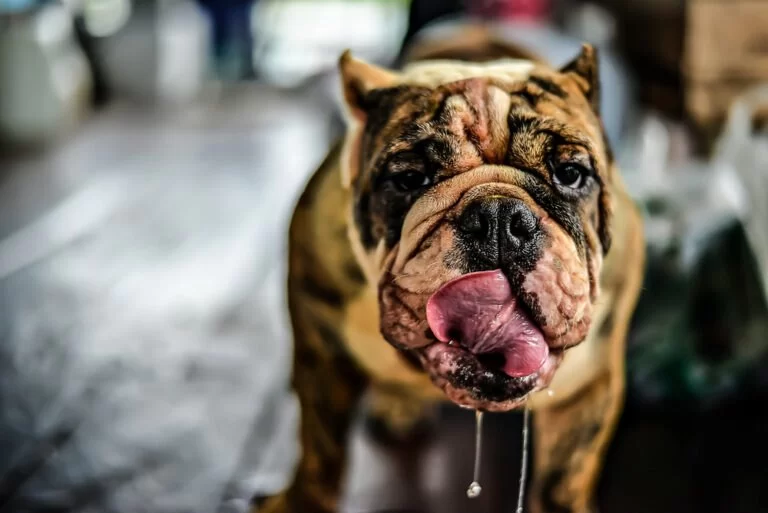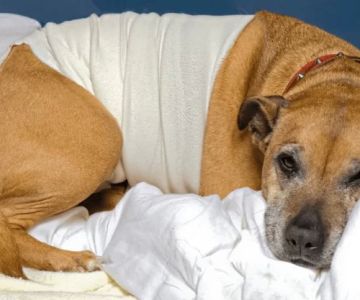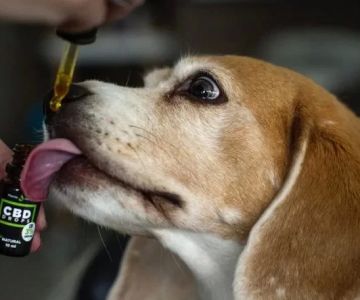- understanding‑dog‑excessive‑drooling‑at‑night
- common‑causes‑of‑nighttime‑drooling‑in‑dogs
- when‑drooling‑is‑a‑health‑concern
- real‑pet‑owner‑experience‑and‑what‑it‑taught‑us
- what‑you‑can‑do‑if‑your‑dog‑drools‑too‑much‑at‑night
1. Understanding Dog Excessive Drooling at Night
Waking up to find your dog’s bed soaked with drool can be concerning. While some drooling is normal—especially in breeds like Saint Bernards or Bloodhounds—excessive drooling at night may indicate something more serious. It’s important to understand that drooling (also called ptyalism) is often your dog’s way of reacting to physical discomfort or internal stimuli while at rest.
Since nighttime is when your dog is least active, this is often when certain symptoms show up more clearly. Dogs that don’t drool much during the day but drool significantly while sleeping should be carefully observed.
2. Common Causes of Nighttime Drooling in Dogs
Several factors could be behind excessive nighttime drooling in dogs, ranging from the benign to the concerning. Here are some of the most common causes:
Dental Issues: Dogs with infected gums, tooth abscesses, or tartar buildup may drool more during sleep due to pain and inflammation in the mouth.
Nausea or GI Upset: Dogs with upset stomachs, acid reflux, or dietary issues may produce more saliva to coat the throat, which then pools during sleep.
Foreign Object: A small stick, bone shard, or other object stuck between teeth or under the tongue can cause drooling. This often becomes more obvious at night.
Heat and Panting: Overheating can lead to panting and salivation. If your dog sleeps in a warm room or under heavy blankets, it may explain excess drool.
Breed Traits: Breeds with looser lips or shorter snouts are prone to drooling even while relaxed or asleep—this is common but should still be monitored for changes.
3. When Drooling Is a Health Concern
If your dog’s nighttime drooling is accompanied by other symptoms such as:
- Bad breath
- Loss of appetite
- Restlessness or pacing at night
- Swelling around the jaw or throat
- Whining or pawing at the face
…it’s time to seek veterinary attention. These signs may point to oral infections, trauma, or even systemic illness. Sometimes, neurological issues or toxin exposure can also result in sudden, excessive salivation.
When in doubt, consulting with a professional—such as those at Hidden Brook Veterinary—can offer peace of mind and ensure your dog receives appropriate care.
4. Real Pet Owner Experience and What It Taught Us
Jessica, a Labrador owner from Austin, shared a story about her dog Max. “He never drooled until one night I found his bed soaked,” she recalls. “I thought it was just heat. But a checkup revealed he had a cracked molar that was inflamed. After a simple extraction, the drooling stopped.”
Another case came from Brooklyn, where a French Bulldog named Duke began drooling excessively overnight. “We discovered he had a small piece of rawhide stuck near his back teeth. It didn’t bother him during the day, but at night while relaxed, the saliva just kept coming.”
These real-life experiences show how drooling might be your dog’s subtle way of telling you something is wrong.
5. What You Can Do If Your Dog Drools Too Much at Night
Start by gently checking your dog’s mouth for signs of inflammation, broken teeth, or foreign objects. Avoid reaching deep into their throat, as this can be dangerous if not trained. Observe their overall behavior—appetite, mood, and whether the drooling continues in other settings.
Make sure your dog sleeps in a cool, clean, and comfortable area. Consider adjusting their diet if digestive upset seems likely, and avoid giving bones or treats that may splinter or get stuck.
And most importantly, schedule a visit with your veterinarian. A full oral exam and health screening can identify underlying issues and get your pet the help they need.
If you're unsure where to start, we recommend consulting the professionals at Hidden Brook Veterinary, who offer experienced, compassionate care tailored to your dog’s specific needs.











